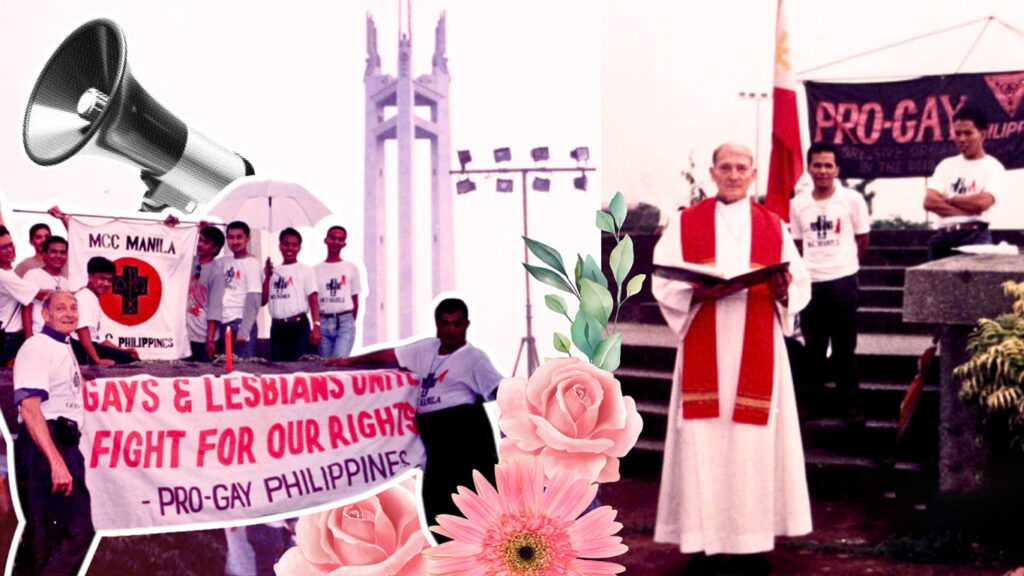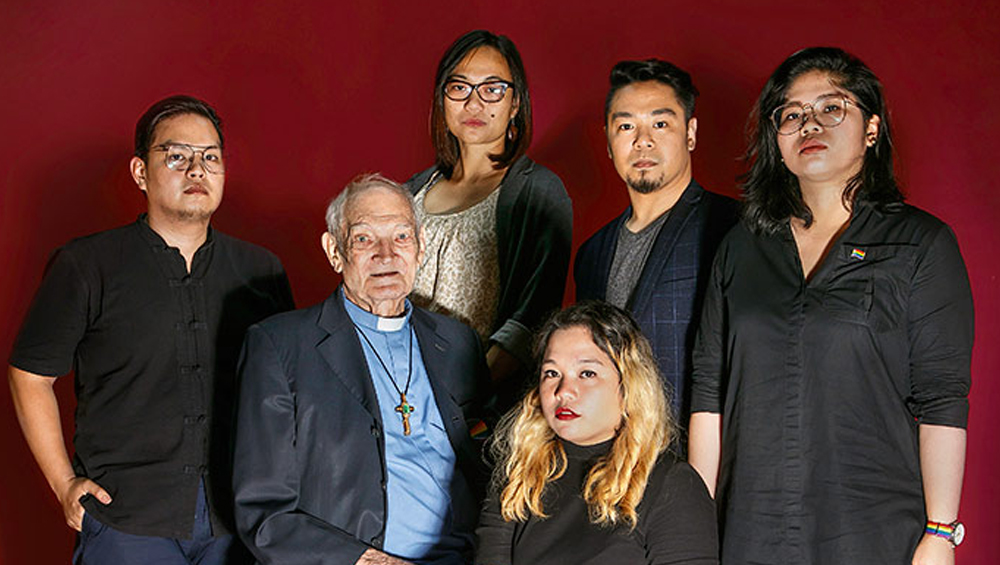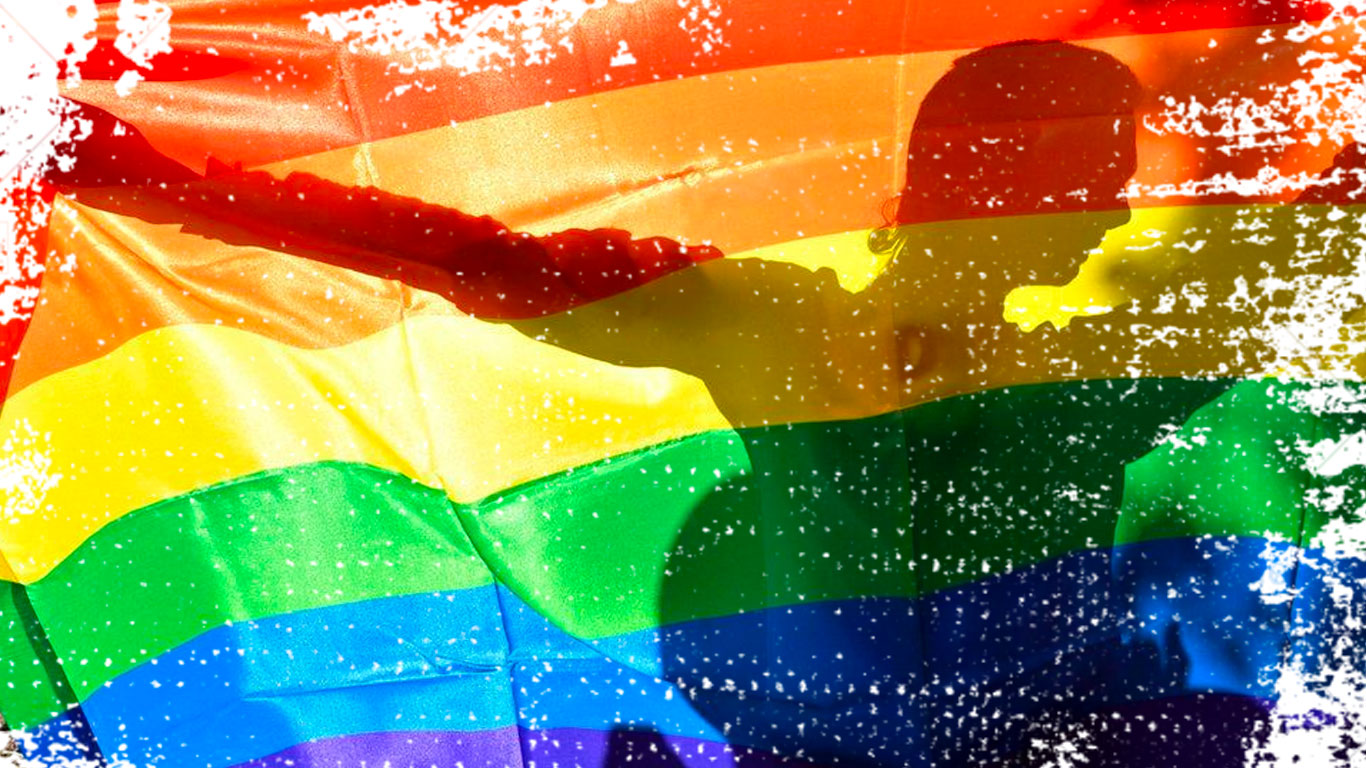A Pride Story in the Philippines: Despite differing historical and narrative interpretations, there is a near consensus that the Pride movement in the Philippines intentionally began in the first half of the 1990s.





Pride and the LGBTQIA+ movement in the Philippines were almost nonexistent prior to the early 1990s. That is not to say that LGBTQIA+ Filipinos did not exist. Of course, we did, even though the current acronyms and terminologies were not yet in use back then. We existed but were not as visible or as well-connected as we are today. Our only visibility came from caricatures, such as Dolphy and Roderick playing feminine gay men or Nora Aunor playing a lesbian character alongside Vilma Santos in their film, T-Bird at Ako.
According to the consistent witness and testimony of Bishop Richard Mickley, who passed away on February 14, 2023, he received a letter in 1991 from Michael Santos, a gay man from the Philippines, inquiring about the Metropolitan Community Churches (MCC) and how to establish one in the Philippines. At the time, Rev. Mickley was a pastor of MCC Auckland in New Zealand. He traveled to the Philippines using borrowed money to consult and network, assessing the feasibility of starting an MCC Church in Manila. This was during a time when the internet and social media were nonexistent.
Upon his arrival in the Philippines, he met Michael Santos, who had written the letter, and several other individuals. He also visited the National Cathedral of the Iglesia Filipina Independiente (IFI), also known as the Philippine Independent Church or Aglipay Church, and met with their Obispo Maximo, The Most Reverend Tito Pasco. According to Fr. Richard and as documented in photos he kept, with the approval of the IFI leadership, he held the first MCC Mass (worship service) in the National Cathedral of the IFI, and a petition was signed to establish an MCC church in the Philippines.
Fr. Richard stated, “I had celebrated the first Pride Mass in the Philippines on June 26, 1991 with a speech about the worldwide work of MCC in the Cathedral of the Holy Child with Jomar Fleras assisting, 50 people in attendance, and a Methodist pastor and an Aglipayan priest concelebrating.”
He went to the headquarters of MCC in Los Angeles, USA, and sought the approval of the founding pastor and then global moderator of MCC, Rev. Troy D. Perry. After receiving approval from Rev. Perry and the council of elders, he returned to Auckland to resign as its pastor. He sold his property and then, on September 7, 1991, came back to the Philippines to establish the first LGBTQIA+ affirming church and the first public LGBTQIA+ organization in the country.
In August 1992, UP Babaylan was founded at the University of the Philippines, Diliman Campus, becoming the first and now the oldest LGBTQIA+ student organization in the country. Fr. Richard also had interactions and engagements with UP Babaylan, where he met Simon Arias, who would eventually become his lifelong partner (spouse). In August 1993, Pro-Gay Philippines was established — a militant and activist organization composed of activist students from several universities and colleges, primarily from UP Diliman and the Polytechnic University of the Philippines.
According to prevailing accounts, a group of lesbians who called themselves the “Lesbian Collective” bravely marched in public during the Women’s March of 1992. They intended to assert their space and voice within the women’s movement during the International Women’s Day march in March of that year, emphasizing that lesbian women are also part of the women’s sector and the struggle for women’s rights. Many interpret this as the first Pride initiative within the women’s movement.
From 1991 to 1994, MCC Manila, registered as MCC Philippines, gathered weekly for worship, study, and fellowship. Aside from his pastoral duties to MCC Manila, Fr. Richard continued to network and engage with the few individual activists and organizations existing at the time. Rev. Elder Hong Tan, the first Asian MCC Elder (Bishop), visited MCC Manila, the first church of the global MCC in Asia, in March 1994. His visit was documented and archived in the physical monthly news magazine of MCC, Keeping in Touch, in the April 1994 edition. During his preaching at one of the worship services of MCC Manila, Rev. Elder Tan encouraged the congregation to do three things:
- Transition the leadership of MCC Manila to a local Filipino pastor.
- Articulate and develop an indigenous Queer Filipino Faith by the members and leaders of MCC Manila.
- Organize the first Pride March for that year, since 1994 marked the 25th anniversary of the Stonewall Uprising.
Upon the recommendation of Elder Tan, MCC Manila, with some of its members also part of Pro-Gay Philippines, began to plan and organize the Pride March for that year. According to Fr. Mickley and Murphy Red, they also approached other individuals and organizations to join in organizing the first pride march. However, the response they received was one of apprehension, with suggestions such as, “Maybe not this year.” Despite this, MCC Manila and Pro-Gay proceeded, and on June 26, 1994, in commemoration of the 25th anniversary of the Stonewall Uprising, a small group of gay men and a couple of lesbian women marched against intersectional oppression. They voiced the rights of the lesbian and gay community at a time when the term “LGBT” was still emerging and not yet widely or popularly used by both the fledgling movement and the wider public.
From the very start, the 1994 Pride March was always intended by its organizers to be a Pride March, as evidenced by archived documents and photos. Rev. Elder Hong Tan recommended to MCC Manila during his visit that they organize the first Pride March to commemorate Stonewall and everything it represents in the fight for equal rights. Following Elder Tan’s recommendation, Rev. Richard Mickley, Oscar Atadero, Murphy Red, and Allan Tollosa, along with MCC Manila and Pro-Gay Philippines, prepared, organized, and mobilized their efforts to march for equal rights.
Thus began the Pride movement in the Philippines. From the establishment of MCC Manila and UP Babaylan in 1991 and 1992 respectively, to the courage of the Lesbian Collective marching during the International Women’s Day march of 1992, culminating in the first-ever Pride March of 1994, and subsequently the broader Pride March of 1996 by Outreach Foundation. There were no performers, just individuals coming together during a time and society where they were nearly invisible not only to the public but to each other. There was no local or national government support, nor any international funding, but rather struggling individuals pooling whatever little resources they had to establish a handful of organizations and one affirming church. There were no celebrities or influencers, and no internet or social media; only a small group of dedicated individuals doing the hard work of networking and advocacy without knowing exactly how to proceed.
We stand on their stories and shoulders, and we continue to march for equal rights not only for ourselves and future generations but also to honor all our queer ancestors and forebearers, both living and deceased. Let us march in the names and spirits of the Lesbian Collective, MCC Manila, UP Babaylan, Pro-Gay Philippines, and Outreach Foundation. Despite our differences in political beliefs and even contentious historical narratives and interpretations, let us unite with the intention that traces back not only to Stonewall but also to the comfort gays and lesbians who were victims during World War II, and to the Babaylans of our pre-colonial past martyred by the Roman Catholic Spaniards and Friars. Let us carry forward their stories and their struggle for intersectional justice and the common good for all.
As we celebrate the 30th anniversary of Stonewall Manila, let us unite and continue fighting for our rights. Ating Kulayaan, magkakasamang ipaglaban.



